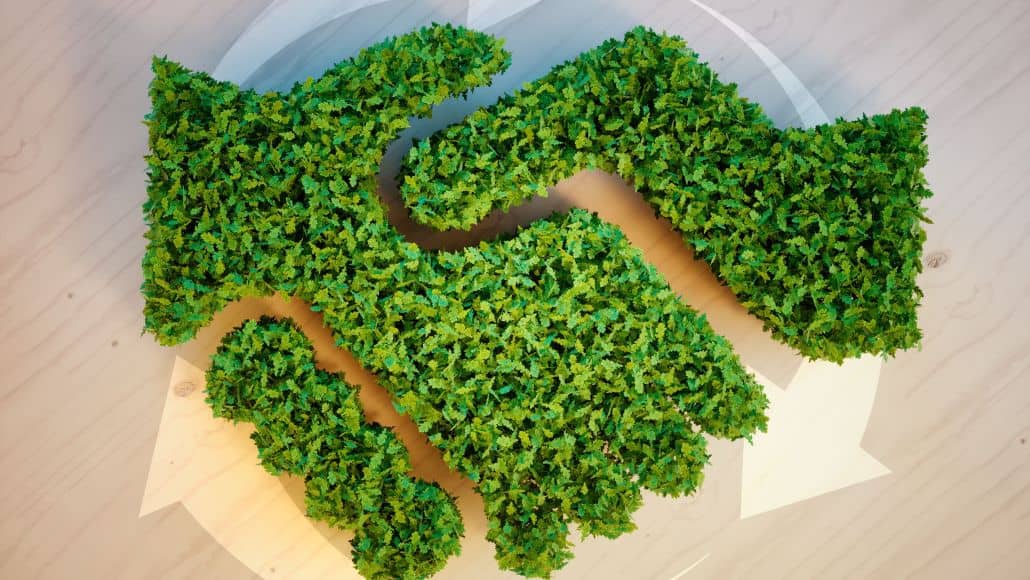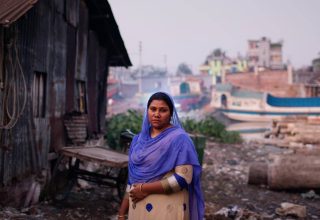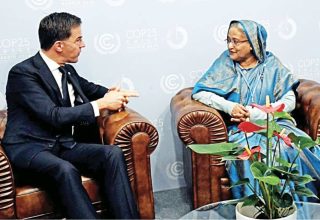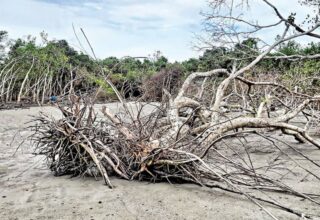
As Bangladesh aims to graduate out of Least Developed Country (LDC) status over the next few years and become more intimately involved in various international activities and issues, we need to make tackling climate change a national and diplomatic priority as well.
This means that every new Bangladeshi diplomat should have a basic understanding of what climate change is, how Bangladesh is tackling it, and how we can share our knowledge and experience with other countries. Fortunately, the Foreign Service Academy under the Ministry of Foreign Affairs (MOFA) has had an arrangement with the International Centre for Climate Change and Development (ICCCAD) to provide a short course on climate diplomacy for each new batch of Foreign Service officers these past few years. Hence, our new diplomats now have a basic understanding of the main climate change-related issues that the country is facing, and on how to share information with other countries and international institutions.
At the same time, as Prime Minister Sheikh Hasina has taken over the chair of the Climate Vulnerable Forum (CVF) for a second two-year term, it is now incumbent on all Bangladeshi ambassadors and high commissioners in different countries to raise their voices on climate change-related issues, at both bilateral and multilateral levels. For example, the Bangladeshi High Commissioner to the United Kingdom has already initiated and set up a group of CVF ambassadors in the UK in anticipation of the upcoming COP26, which the UK will host in Glasgow this November. The Permanent Missions of Bangladesh in Geneva and New York have also set up CVF ambassadors’ fora in their respective cities. Bangladesh is increasingly recognised as a significant player in the global climate change arena, as we don’t only represent one country but nearly 50 vulnerable developing countries. This is certainly one of the reasons why we received visits from President Biden’s climate envoy John Kerry, as well as the COP26 President-designate Alok Sharma, in the last couple of months. These are in recognition of Bangladesh’s growing role at the global level on climate change issues.
Another important development is that the Bangladesh Finance Minister is now chairing the V20 Group of Finance Ministers of the CVF (this actually includes 48 countries), and the Economic Resources Division (ERD) of the Ministry of Finance has an important role to play in helping the V20 Finance Ministers implement their own work programmes to make their countries more resilient as well as prosperous. The Ministry of Environment, Forest and Climate Change (MOEFCC) continues to hold the lead role on behalf of the country at the United Nations Framework Convention on Climate Change (UNFCCC) meetings, such as the COPs. All three, namely the MOEFCC, MOFA, and ERD, have very important international roles to play on behalf of Bangladesh on the global stage.
In addition to the government ministries, civil society, youth, the media and the private sector have significant roles to play in tackling climate change, with an added international dimension. This will enable Bangladesh to speak at many different international forums with a whole-of-society voice on tackling climate change.
Finally, let me end with my message to the newest batch of Bangladeshi diplomats when I spoke to them this week. Wherever they are posted over their upcoming careers, whether to another country or to an international agency, they will be expected to know something about climate change and what Bangladesh is doing about it. This is because Bangladesh has already earned itself a global reputation as a climate vulnerable developing country. However, the task of our diplomats is now to change the narrative from emphasising our vulnerability to climate change impacts to our resilience in the face of those impacts, and indeed towards becoming prosperous despite them. This shift in narrative from vulnerability to resilience to prosperity is outlined in the Mujib Climate Prosperity Plan, currently being finalised. At the same time, they need to offer to share Bangladesh’s experiential knowledge and learning in locally led adaptation to climate change with other developing countries in a South-South knowledge sharing, as well as with developed countries in South-to-North knowledge sharing.
There is a very important upcoming summit event on climate finance, chaired by the Prime Minister with the UN Secretary General as well as other heads of government of the CVF and Finance Ministers of the V20 countries, being held virtually on July 8, which can become the springboard for enhancing Bangladesh’s climate diplomacy globally.
Bangladesh has a golden opportunity to enhance its image in tackling climate change and getting globally recognised for this achievement in the years to come.
Originally this article was published on July 07, 2021 at Daily Star. The author Prof. Saleemul Huq is the director of the International Centre for Climate Change and Development (ICCCAD) at the Independent University, Bangladesh (IUB).
Email: saleemul.huq@icccad.org






